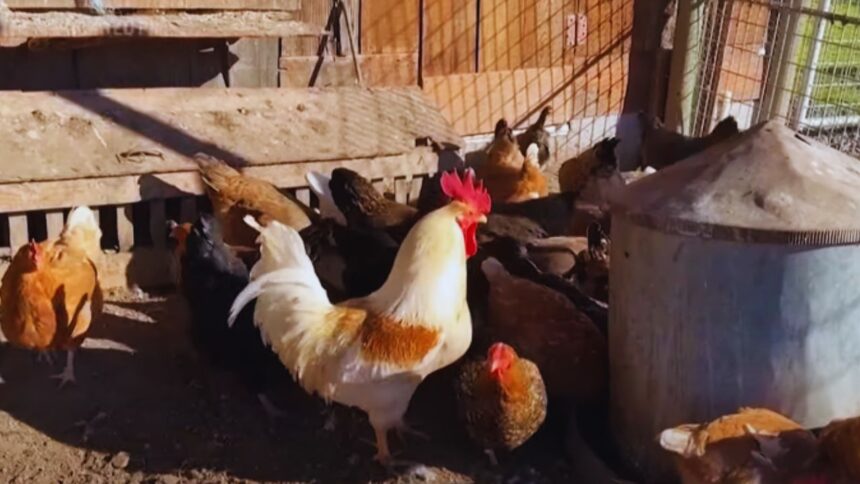As the nation grapples with the latest outbreak of bird flu, federal authorities are urging the public and public officials to remain vigilant but not panic. In a briefing held Thursday, Dr. Nirav Shah, the principal deputy director of the Centers for Disease Control and Prevention (CDC), emphasized the importance of staying “alert but not alarmed” regarding the spread of the highly pathogenic avian influenza.
The briefing coincided with the release of two detailed reports by the CDC, shedding light on the current status and spread of the outbreak. According to the reports, more than 90 farms across 12 states have reported infections since late last year. The outbreak, initially confined to poultry, has now seen transmission to cattle, marking a concerning development in its progression.
Dr. Shah emphasized that there have been three cases of the disease spread by sick livestock, which has alarmed the population. He did, however, reassure that the risk to the broader public is still minimal and that these incidents were isolated. “We should take these data, understand them in context, and we should, as we are, be alert but not alarmed,” Shah said.
Bird flu, also referred to as highly pathogenic avian influenza, is mostly caused by influenza A viruses that normally infect wild birds and can also infect domestic poultry. Although historically the virus has only affected bird populations, humans and other animals have occasionally been infected by it.
State and federal agriculture agencies have been putting out great effort to contain the virus ever since the outbreak reappeared in the latter part of last year. The Midwest is home to the majority of the impacted farms, including noteworthy instances in states like Iowa, Minnesota, and Nebraska. Significant economic consequences have resulted from the virus, with chicken farmers suffering catastrophic losses as a result of culling affected flocks to stop the infection from spreading.
Be ‘alert but not alarmed’ about bird flu, CDC official urges. https://t.co/2KOtdoaMc8
— USA TODAY Health (@USATODAYhealth) June 13, 2024
Health experts are concerned about the spread of avian flu from poultry to cattle and then to humans. Despite being alarming, the three human cases have been linked to close contact with diseased animals, highlighting the necessity of strict biosecurity protocols on farms.
Dr. Shah stressed that there is no evidence of sustained human-to-human transmission, which is a crucial factor in preventing a potential pandemic. “The isolated human cases underscore the importance of maintaining rigorous safety protocols in agricultural settings,” he noted.
In light of the outbreak, the CDC has reinforced several preventive measures aimed at curbing the spread of the virus. These include increased surveillance of poultry and livestock, stringent biosecurity practices on farms, and public education campaigns to raise awareness about the symptoms and risks associated with bird flu.
It is recommended that farmers and other agricultural workers wear protective gear when working with livestock and report any disease in their flocks or herds as soon as possible. To lower the risk of infection, the public is advised to stay away from wild birds and to practice proper hygiene, such as often washing their hands.
Even though the present outbreak is very difficult to contain, Dr. Shah and other medical professionals are optimistic that it may be contained. To keep an eye on the situation and put appropriate response plans into place, the CDC is working closely with state health departments and the U.S. Department of Agriculture (USDA).
Dr. Shah concluded the briefing with a message of cautious optimism, “We are closely monitoring the situation and are prepared to respond swiftly to any new developments. Our primary goal is to protect public health and ensure the safety of our nation’s food supply.”
As the situation evolves, staying informed and adhering to recommended safety measures will be key in navigating the challenges posed by the bird flu outbreak. The CDC will continue to provide updates and guidance to keep the public and agricultural communities safe.
Read More: FansGossip






